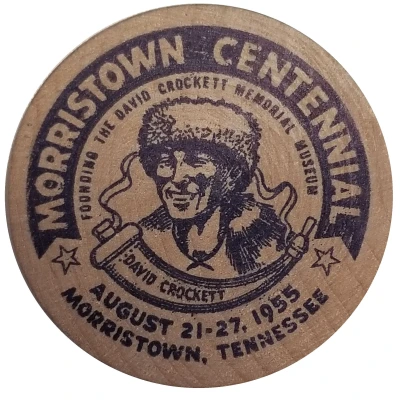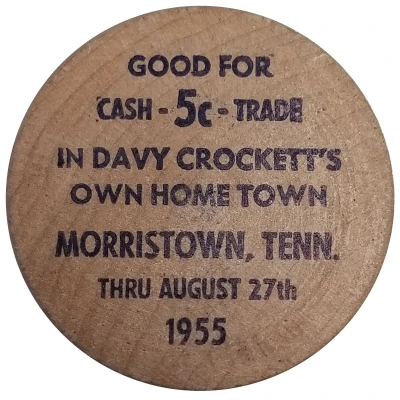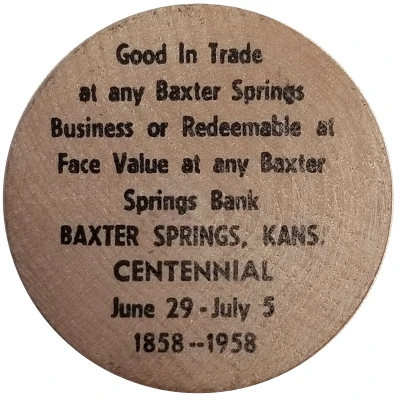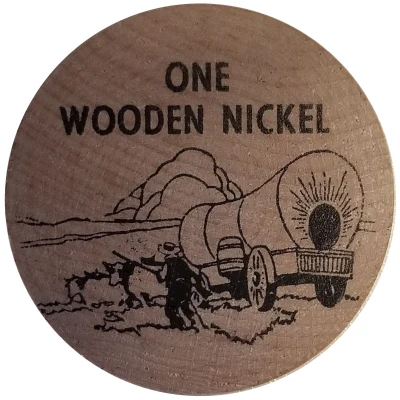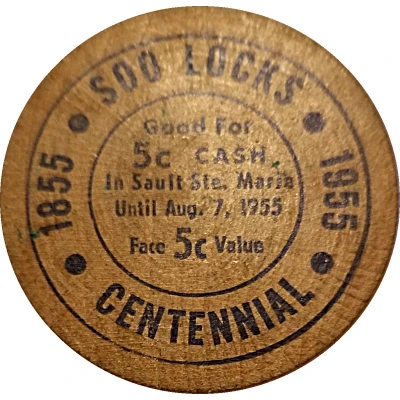
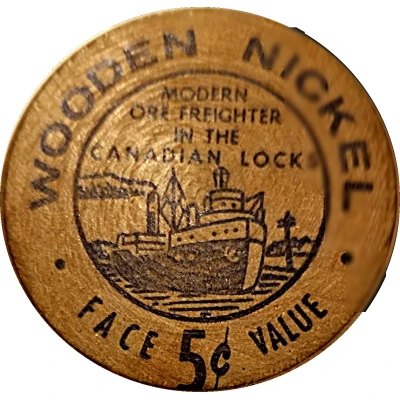

© Disha41754 (CC BY)
Wooden Nickel - Soo Locks Centennial Modern Ore Freighter
1955 year| Wood | 2.5 g | 37 mm |
| Location | United States |
|---|---|
| Type | Trade tokens › Business tokens |
| Year | 1955 |
| Value | 5 Cents (0.05 USD) |
| Currency | Dollar (1785-date) |
| Composition | Wood |
| Weight | 2.5 g |
| Diameter | 37 mm |
| Thickness | 3 mm |
| Shape | Round |
| Orientation | Coin alignment ↑↓ |
| Demonetized | Yes |
| Updated | 2024-11-14 |
| Numista | N#142547 |
|---|---|
| Rarity index | 97% |
Reverse
Ore freighter right.
Script: Latin
Lettering:
WOODEN NICKEL
MODERN
ORE FREIGHTER
IN THE
CANADIAN LOCKS
• FACE 5¢ VALUE•
Edge
Plain
Comment
The Soo Locks (sometimes spelled Sault Locks, but pronounced "sue")are a set of parallel locks that enable ships to travel between Lake Superior and the lower Great Lakes. They are located on the St. Marys River between Lake Superior and Lake Huron, between the Upper Peninsula of the US state of Michigan and the Canadian province of Ontario. They bypass the rapids of the river, where the water falls 21 feet (6.4 m). The locks pass an average of 10,000 ships per year, despite being closed during the winter from January through March when ice shuts down shipping on the Great Lakes. The winter closure period is used to inspect and maintain the locks.
The locks share a name (usually shortened and anglicized as Soo) with the two cities named Sault Ste. Marie, in Ontario and in Michigan, located on either side of the St. Marys River. The Sault Ste. Marie International Bridge between the United States and Canada permits vehicular traffic to pass over the locks. A railroad bridge crosses the St. Marys River just upstream of the highway bridge.
The first locks were opened in 1855. Along with the Erie Canal, constructed in 1824 in central New York State, they were one of the great infrastructure engineering projects of the antebellum United States. The Soo Locks were designated a National Historic Landmark in 1966. During World War II, the Soo Locks and the St. Marys River waterway were heavily guarded by U.S. and Canadian forces coordinated by the U.S. Army's Central Defense Command. https://en.wikipedia.org/wiki/Soo_Locks
